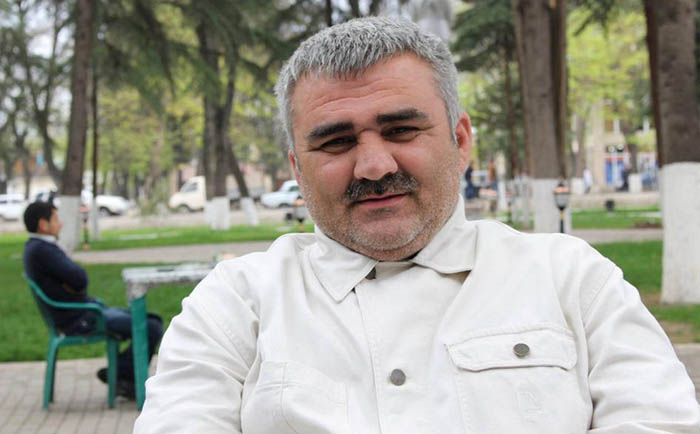
An oppressive new set of rules on the free expression of civil society groups will put Azerbaijan on a par with its totalitarian neighbours, says Vugar Gojayev
Azerbaijan’s Parliament, the Milli Majlis, convenes today (30 June) to discuss controversial draft amendments to the law on NGOs, while dozens of local and international organisations urge the parliament to delay the vote. Human rights groups continue to severely criticise the draft bill, which will further restrict the right to freedom of expression and freedom of association and effectively stifle civil society.
The proposed amendments intend to significantly limit the ability of both local and international NGOs to operate in Azerbaijan. In a statement on 16 June, the Council of Europe said the changes, if adopted, “may create serious obstacles for the freedom of expression and normal functioning of the civil society in Azerbaijan”.
Dominated by pro-government MPs, Azerbaijan’s parliament failed to consult with civil society groups before drafting the amendments to the law. That provided a considerably small opportunity for government critics to assess and comment on the bill.
Among the major restrictions, the draft law requires that NGOs limit foreign donations so that this funding comprises only 50 per cent of overall funding. Such a limitation has a severe effect on many NGOs: a majority of the domestic NGOs rely on foreign funding because of the scarcity of domestic funding sources. If this provision is adopted, many foreign-funded NGOs will be in violation of law.
Other controversial provisions include disallowing foreign NGOs to open offices in Azerbaijan unless there is an international agreement between Azerbaijan and the NGOs’ country of origin. The vaguely worded provision does not clearly indicate what kind of “international agreement” is required. This provision may well prevent the work of international human rights organisations in the country.
Human rights activists believe the changes aim to make independent NGOs more dependent on government funding and thus lose independence. “The changes in their current form put a lid on civil society development and bring the independent NGOs under government control,” said Fuad Hasanov, head of Baku-based Democracy Monitor.
The changes also require all the NGOs operating in the country be registered with the state, and give more power to the authorities to ban the NGOs functioning without state registration. Azerbaijan has a long history of extremely bureaucratic registration procedures and refusal to register opposition NGOs dealing with socio-political rights. It sometimes takes several years for an NGO to register.
Novella Jafaroglu, a civil rights activist, believes the provision will allow the authorities to refuse to register opposition or unwanted NGOs. “The mandatory registration is clearly a politically motivated act intended to silence the government’s critics,” she said.
The draft also considers prohibiting foreigners from creating NGOs and imposing a five-year ban on founders of organisations and media outlets that do not comply with the law.
To challenge the draft bill, local civil society and human rights activists established the Committee to Protect Civil Society. The committee said the draft bill is a “blow” to the country’s vibrant civil society and is in “complete contradiction” to Azerbaijan’s obligations to international organisations. Police prevented the committee’s unsanctioned protest action at parliament on 19 June.
Supporting the changes, the authorities claimed the amendments will bring more transparency in the NGO sector and avoid NGOs from being “financed by some donors with a hidden agenda”. In an interview with ANS TV, pro-government MP Aydin Mirzazade said the changes will help the government to “best provide the country’s security”.
However, opposition activists claim the amendments are a broader government plan to stifle dissent and block any independent and non-governmental initiative. “Having effectively swept away the political opposition from the political scene, now the media and NGOs are under extensive assault,” says Taliyat Aliyev of the oppositional Democratic Party (ADP).
International rights groups had repeatedly raised grave concerns about the government’s absolute consolidation of power and its tight grip on civil liberties. In the past three years, Freedom House, in its annual survey of political rights and civil liberties, ranked Azerbaijan as a “Not Free” country due to the downward trend in the guarantee of political rights and civil liberties.
Authorities extended a clampdown on independent media outlets in early 2009 by banning Radio Liberty, Voice of America and BBC radio transmissions in local frequencies in Azerbaijan.
The incumbent regime uses defamation provisions to obstruct investigative journalism, prevent public debate and stifle open criticism of the government, public officials and other powerful oligarchs. There are currently four journalists in jail on charges related to their journalistic activity.
Azerbaijan, with its vast oil and gas resources and important strategic role as ally of the West is able to shun international criticism. Ordinary Azerbaijanis understand that the West puts a premium on maintaining the flow of fuel rather than on promoting the rule of law and human rights.
With the draft law adopted, Azerbaijan would find itself in the company of the some of the most restrictive and totalitarian countries in the world, such as Uzbekistan and Belarus. The controversial amendments will put NGOs under further strict government control and interference and could make many domestic and international NGOs halt their operations in Azerbaijan.
The international community needs to be much more vocal in its criticism, and put pressure on the Azerbaijani government to prevent the adoption of the amendments.





